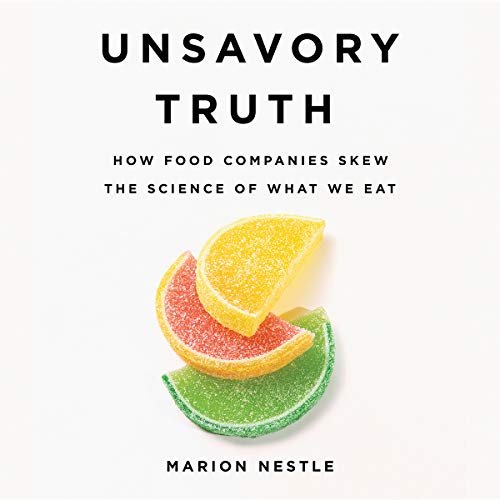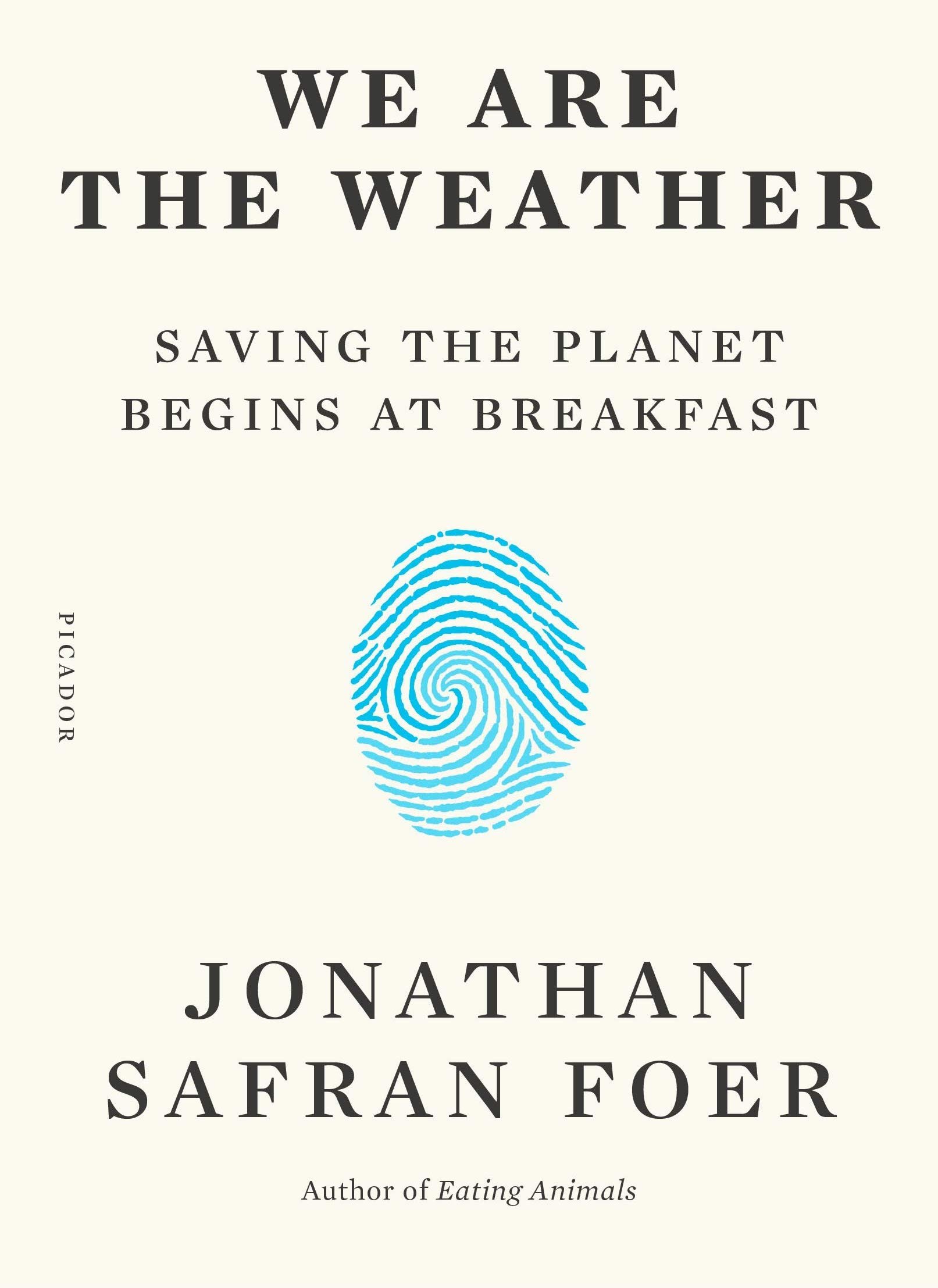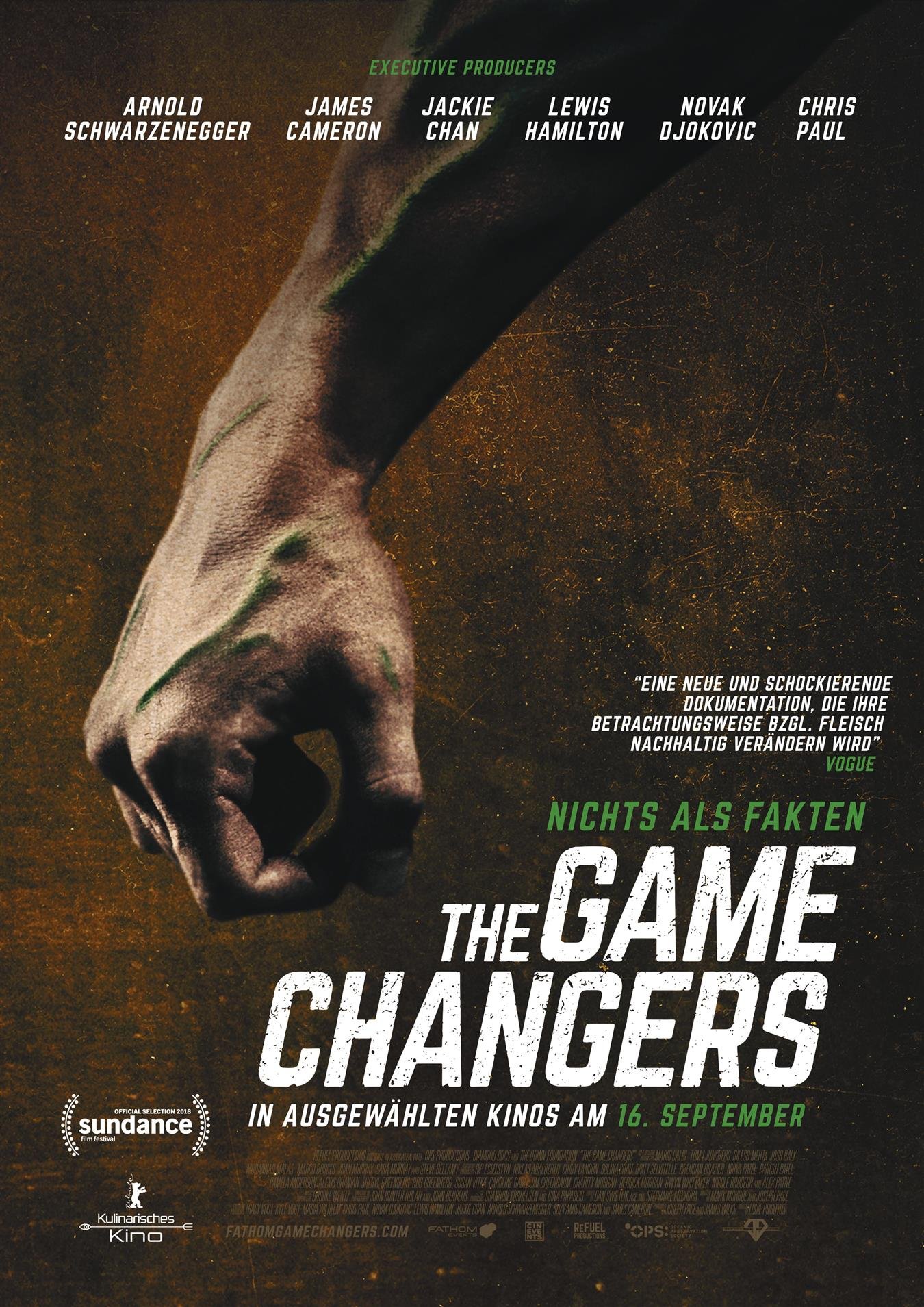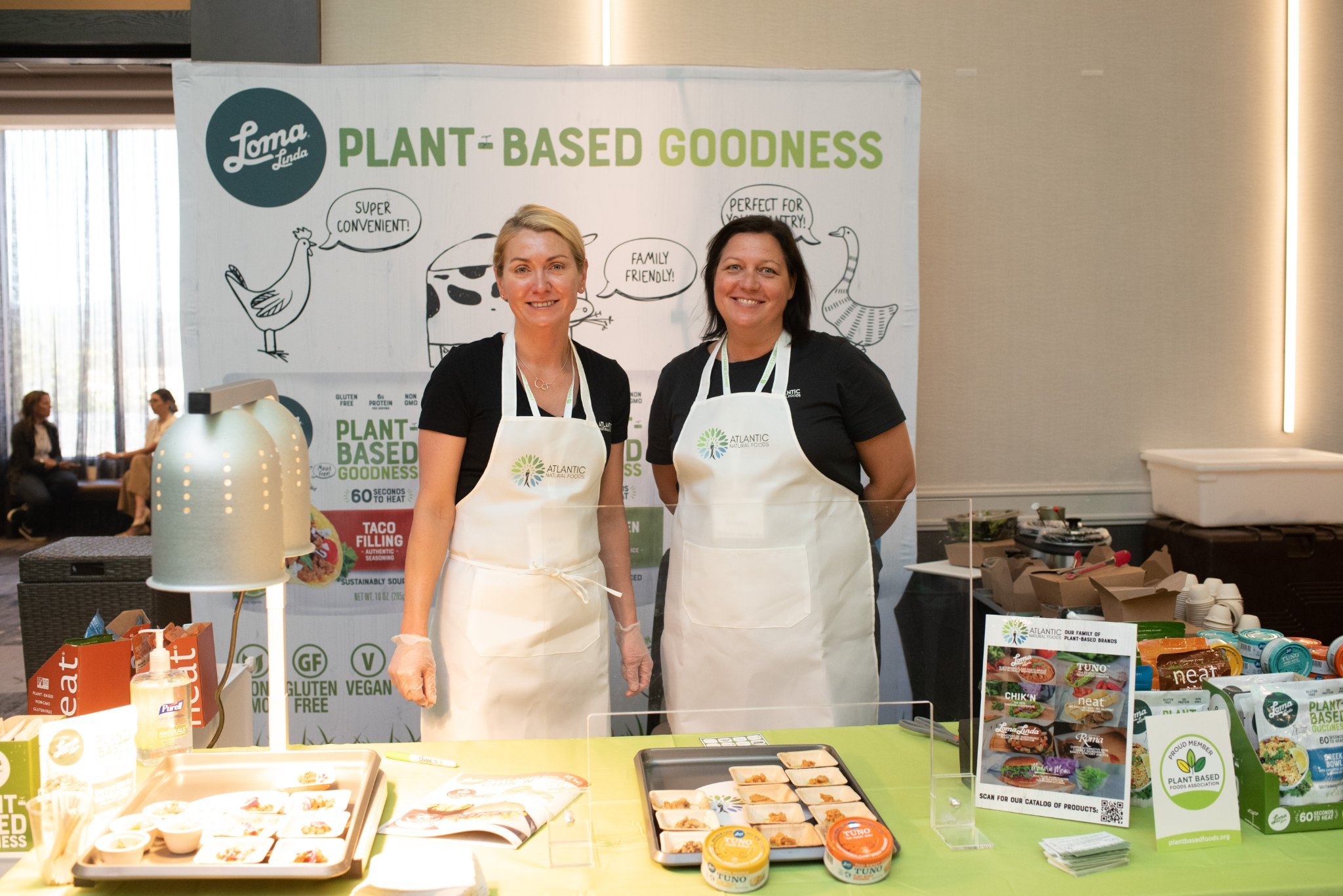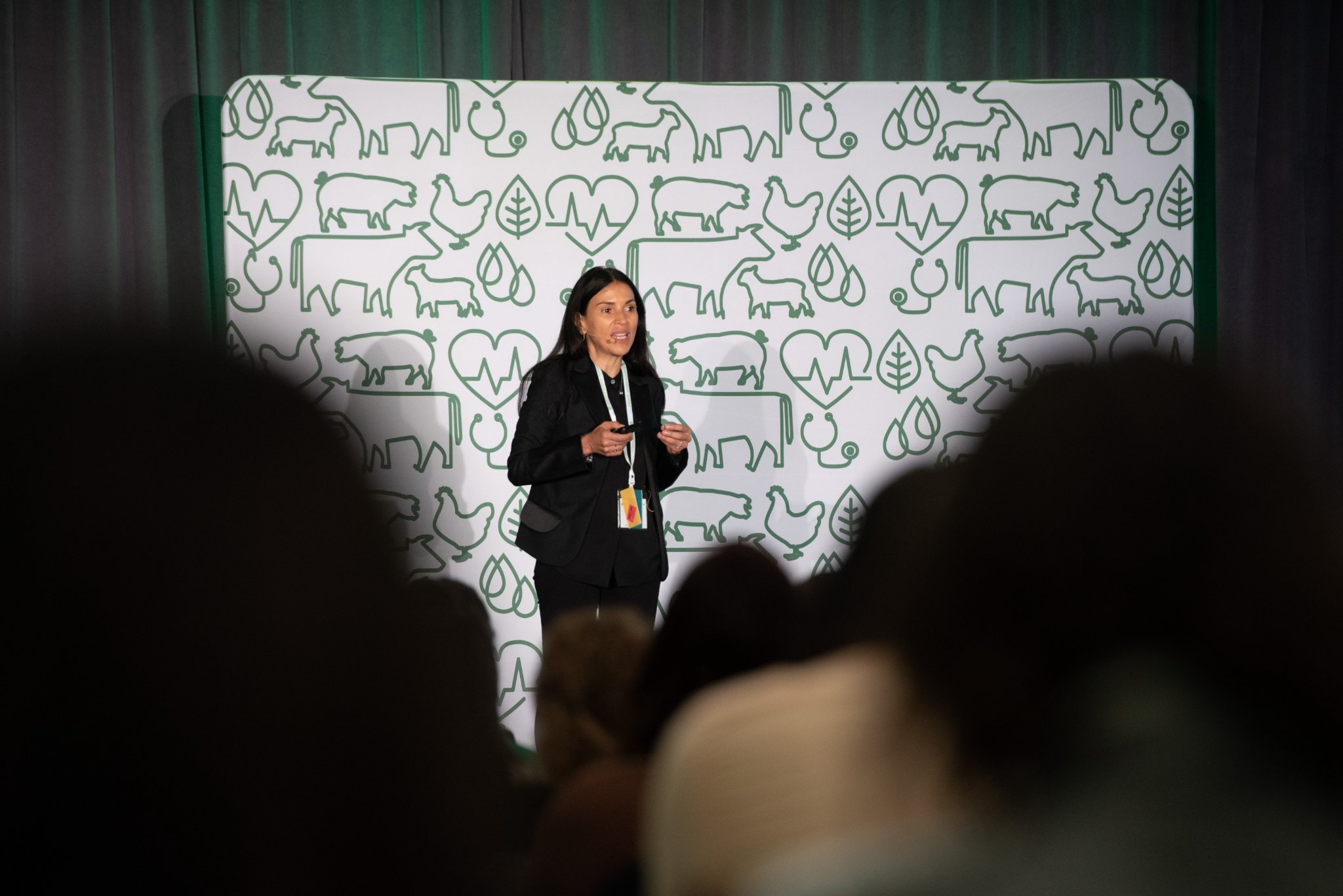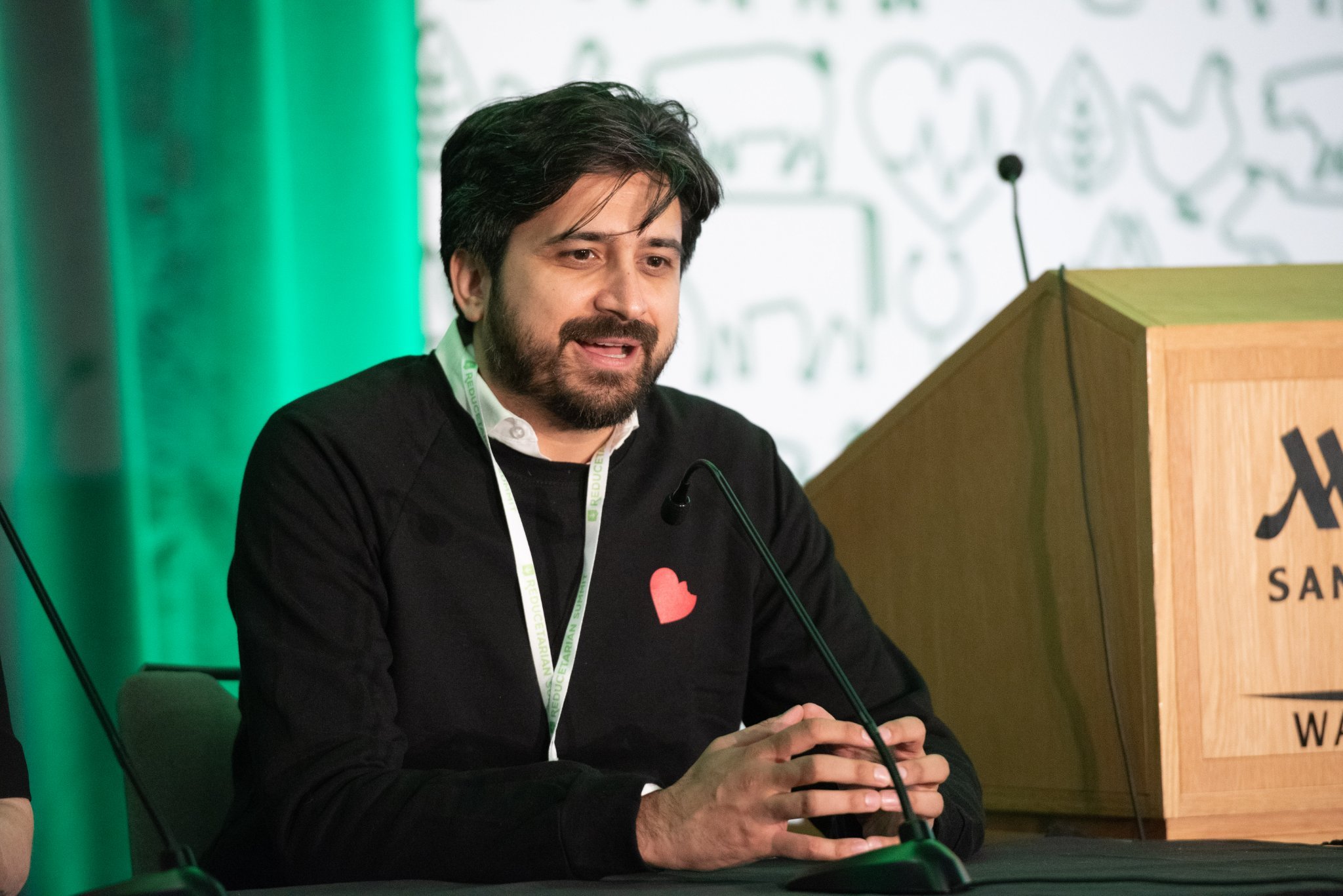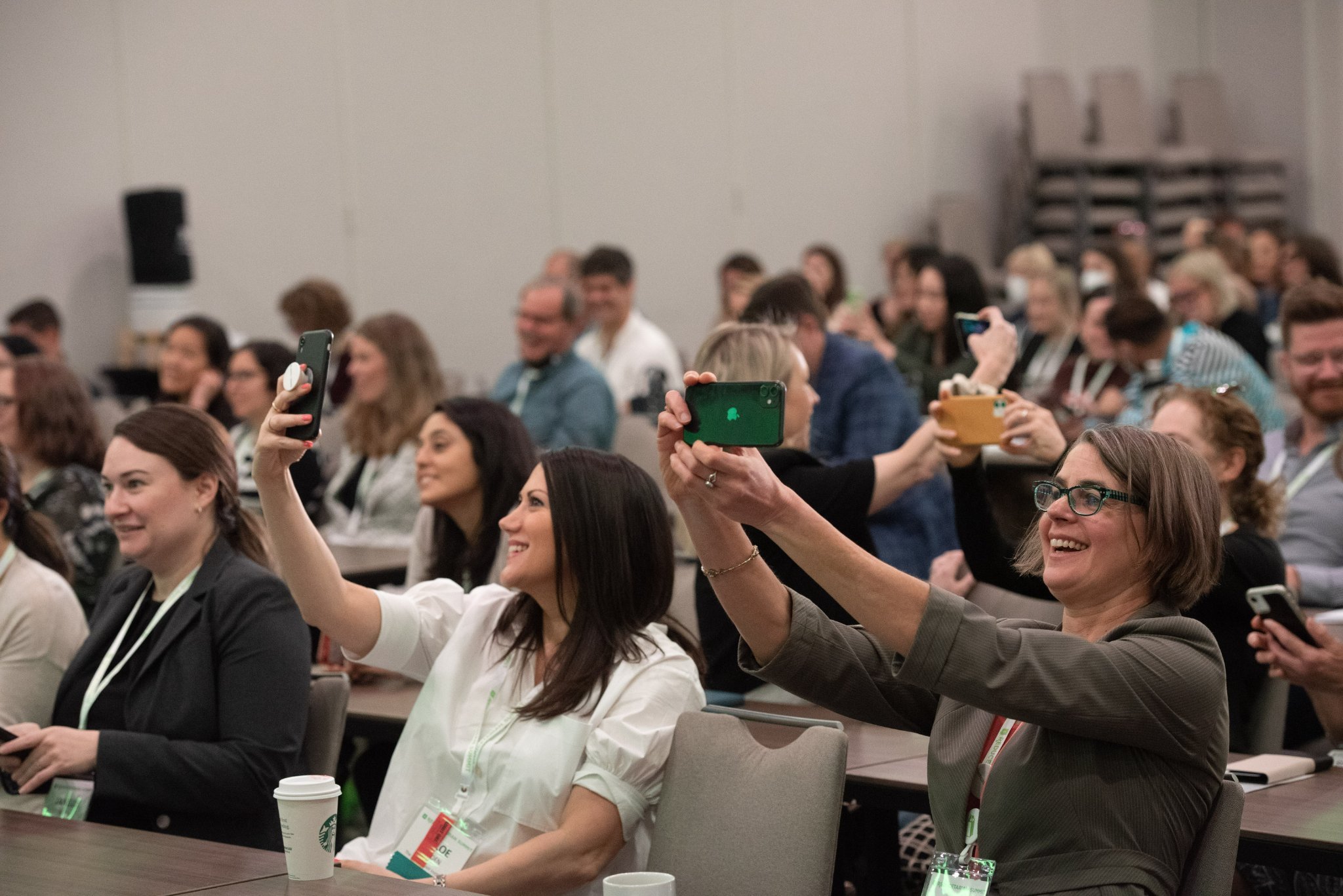We often get asked: now that I’m convinced, how can I get more involved in the Reducetarian Movement? Lucky for you, we’ve prepared a thorough guide. No matter your skill set, we promise there’s a place for you. Read on for a long (but probably not comprehensive!) list of all the ways you can help out. We’ve organized the document into the following sections:
Dig Deeper
Dig Deeper provides a list of books, movies, and more that should be in the toolbelt of any Reducetarian. If we understand our food system better, we can effectively work towards solutions. This is a great starting point for any activist interested in learning more.
Career Options
For someone looking to make the jump into full-time Reducetarian work, we’ve provided a list of options to consider.
Actions Anyone Can Take
This section is for everyone. Almost anyone can eat at veggie/vegan restaurants, write to their member of Congress, or talk to their friends and family about the Reducetarian concept.
Dig Deeper
One of the first steps to getting involved in the Reducetarian movement is to learn more. If you’re hoping to donate, volunteer, or even work full time in the Reducetarian Movement, digging deep will help you engage in an informed, thoughtful way. For example, learning more about the differences between activist- and entrepreneurial-minded approaches to Reducetarianism might help you decide on a career path that’s a better fit for your interests and skills. Below we’ve provided a list of resources that highlights the variety of approaches and schools of thought that align with Reducetarianism. (Please note that we don't necessarily endorse all the views of the authors and creators whose content is included here.)
BOOKS
Diet and Nutrition
Unsavory Truth: How Food Companies Skew the Science of What We Eat by Marion Nestle
The Truth About Food by David Katz
Food Politics: How the Food Industry Influences Nutrition and Health by Marion Nestle
Hooked: Food, Free Will, and How the Food Giants Exploit Our Addictions by Michael Moss
Salt Sugar Fat: How the Food Giants Hooked Us by Michael Moss
In Defense of Food by Michael Pollan
Food Fix: How to Save Our Health, Our Economy, Our Communities, and Our Planet--One Bite at a Time by Mark Hyman
Fast Food Nation: The Dark Side of the All-American Meal by Eric Schlosser
The China Study by T. Colin Campbell and Thomas Campbell
Bet the Farm: How Food Stopped Being Food by Frederick Kaufman
The Omnivore’s Dilemma: A Natural History of Four Meals by Michael Pollan
The Plant-Based Athlete: A Game-Changing Approach to Peak Performance by Robert Cheeke
How Not To Die by Dr. Michael Greger
The Food Revolution: How Your Diet Can Help Save Your Life and Our World by John Robbins
The Forks Over Knives Plan: How to Transition to the Whole Food, Life-Saving, Plant-Based Diet by Alona Pulde and Matthew Lederman
How Not To Diet: The Groundbreaking Science of Healthy, Permanent Weight Loss by Dr. Michael Greger
The Whole Foods Diet: The Lifesaving Plan for Health and Longevity by John Mackey, Alona Pulde, and Matthew Lederman
Environment
Diet for a Hot Planet: The Climate Crisis at the End of Your Fork and What You Can Do About It by Anna Lappé
The Sixth Extinction: An Unnatural History by Elizabeth Kolbert
The End of Nature by Bill McKibben
Diet for a Small Planet by Frances Moore Lappé
Salmon Wars: The Dark Underbelly of Our Favorite Fish by Catherine Collins and Douglas Frantz
The Big Ratchet: How Humanity Thrives in the Face of Natural Crisis by Ruth DeFries
Wizards and Prophets by Charles Mann
There is No Planet B by Mike Berners-Lee
Being the Change: Live Well and Start a Climate Revolution by Peter Kalmus
This Changes Everything: Capitalism vs The Climate by Naomi Klein
The Uninhabitable Earth by David Wallace-Wells
Losing Earth: The Decade We Could Have Stopped Climate Change by Nathaniel Rich
Net Zero: How We Stop Causing Climate Change by Dieter Helm
On Fire: The (Burning) Case for a Green New Deal by Naomi Klein
Storming the Wall: Climate Change, Migration, and Homeland Security by Todd Miller
We Are the Weather by Jonathan Safran Foer
Eat for the Planet: Saving the World One Bite at a Time by Nil Zacharias
No One Is Too Small to Make a Difference by Greta Thunberg
How to Avoid a Climate Disaster: The Solutions We Have and the Breakthroughs We Need by Bill Gates
Ethics
Other Minds: The Octopus, the Sea, and the Deep Origins of Consciousness by Peter Godfrey-Smith
What a Fish Knows: The Inner Lives of Our Underwater Cousins by Jonathan Balcombe
Doing Good Better by William MacAskill
Eating Animals by Jonathan Safran Foer
Why We Love Dogs, Eat Pigs, and Wear Cows by Melanie Joy
Animal Liberation: The Definitive Classic of the Animal Movement by Peter Singer
The Way We Eat: Why Our Food Choices Matter by Peter Singer
Fellow Creatures: Our Obligations to the Other Animals by Christine Korsgaard
Dominion: The Power of Man, the Suffering of Animals, and the Call to Mercy by Matthew Scully
The Case for Animal Rights by Tom Regan
Animal Rights: the Abolitionist Approach by Gary Francione and Anna Charlton
The Sexual Politics of Meat: A Feminist-Vegetarian Critical Theory by Carol J. Adams
Farm Sanctuary: Changing Hearts and Minds about Animals and Food by Gene Baur
The Face on Your Plate: The Truth About Food by Jeffrey M. Masson
The Ethics of What We Eat: Why Our Food Choices Matter by Peter Singer
Think Like a Vegan: What Everyone can Learn from Vegan Ethics by Emilia A. Leese and Eva J. Charalambides
Animal Lover's Guide to Changing the World by Stephanie Feldstein
DOCUMENTARIES
Diet and Nutrition
TWITTER ACCOUNTS
PODCASTS
CONFERENCES
Attending conferences is one of the best ways to expand your interests within Reducetarianism and learn about the work that folks are doing in the movement. Some of the stronger conferences we recommend include:
Career Options
VOLUNTEER OR INTERN AT AN ORGANIZATION
Volunteering or interning can help you try out different roles, build relationships, and figure out if a career in the Reducetarian movement is a good fit for you. It’s a great way to gather more information in a low-stakes way about whether you enjoy a particular type of role or if an organization might be somewhere you’d like to work full time. Taking on internships or volunteer opportunities can be for anyone, but might be an especially good fit for college or graduate school students who have 10-30 hours a week available during their semesters or during summer break.
Organizations to consider
PURSUE A FELLOWSHIP
Fellowships are slightly different from internships. According to ProFellow, “Fellowships usually focus on professional development and/or academic research, rather than professional experience.” So not only will you gain a great deal of knowledge during a fellowship, but you’ll also gain experience and build relationships.
Fellowships to consider
JOB BOARDS
STARTING OR JOINING AN ALTERNATIVE PROTEIN COMPANY
If you’re here, you’ve probably tried products from companies like Impossible Foods or Beyond Meat. Each of these companies started because a founder or two had a vision and decided to take a risk. If starting a company sounds exciting to you, you might be a good fit for entrepreneurship. Alternative protein companies have shifted the marketplace dramatically by offering more vegan- and vegetarian-friendly options, even selling their products at restaurants like McDonalds, Burger King, and more.
If science is more your speed than entrepreneurship, there are plenty of options available to you as well. Many companies have co-founders that are focused on technical problems—as opposed to the side of business related to fundraising, finance, etc.—so you could help start a company. But you could also join a pre-existing company as an employee focused on scientific issues and make a considerable difference. Scientists are working for alternative protein companies to develop better plant-based and cultivated meat products.
There’s also plenty of room for innovation in the food industry–cell-cultured, fermented, and plant-based. We have an episode of The Reducetarian Podcast on how to create a cell-cultured meat company. Listen to it here.
STARTING A RESTAURANT OR FOOD TRUCK
If you like getting your hands dirty, starting a restaurant might be an option to consider. Starting a restaurant or a food truck is a form of entrepreneurship, in that you’ll need to be involved in every aspect of the business. So if you start one, be prepared for budgets, spreadsheets, negotiating with vendors, hiring/firing, and yes, making food. But for some folks who are extremely passionate about food, starting a restaurant can provide the opportunity to be involved in a hands-on way. Some restaurants like Slutty Vegan have gained international attention for their food. Just be sure to keep in mind that starting a restaurant is not for the faint of heart—60% fail within the first year. That said, we have an episode of The Reducetarian Podcast that covers how to start a restaurant. Listen to it here.
STARTING A BUSINESS TO DONATE TO THE MOVEMENT (“EARNING TO GIVE”)
“Earning to give” is the idea that by working a job where you earn a significant amount of money to give away to impactful organizations, you can make a bigger difference than if you worked for that organization itself. This approach might not be for everyone, but for some, it’s a great fit for individuals with a strong skill set or interest in fields like finance, consulting, or cryptocurrency.
BECOME AN INVESTOR
Investors can support the growth of the animal-free food industry in multiple ways. First, they can invest in early-stage startups that are creating next generation alternative protein products to reimagine the future of food. Second, they can encourage other investors to consider supporting alternative protein companies or to pull out of other areas of investment. While there are significant limits to the impact that investing can make, some people with particular business skill sets might be a good fit.
BECOME A PHILANTHROPIST
One of the most significant ways to make a difference in the Reducetarian Movement is to donate to support organizations doing excellent work. Although for many people direct work is going to feel more rewarding, for others, earning money in order to donate it to others is a better fit. According to some, the logic of becoming a philanthropist goes like this: let’s say that you can earn significantly more money in the private sector than a nonprofit would pay their CEO. If you end up donating more than the nonprofit would’ve paid their CEO, you’ve arguably delivered more value for the world. While this logic isn’t fully embraced by everyone in the Reducetarian Movement, it’s clear that if our movement had more financial resources, we could accomplish much more.
RUN FOR OFFICE
Politicians like Cory Booker have made history. Booker is the first vegan to serve on the Senate Agriculture Committee, where he has made a tremendous difference.
Running for office can seem scary, but there are many paths worth considering. In many places, you don’t need to fundraise significant amounts of money to run. In Vermont, Scott Weathers, a vegan who has worked with the Reducetarian Foundation and the Good Food Institute, is running for a state representative seat.
Electing more Reducetarians to public office is critical to the long-term future of our food system. For example, legislators have helped add plant-based options to school meals, stopped harmful labeling bills for plant-based products, and more. If we had more politicians at the local, state, and federal level who were conscious of Reducetarianism, we’d likely see policies that lowered our carbon emissions, reduced animal suffering, and improved public health.
BECOME A LOBBYIST
Everyone knows that lobbyists have a bad reputation for shady deals and bribing politicians. While this field may seem like House of Cards to some, many lobbyists work for valuable causes. If you have expertise in politics but don’t want to run for office or work for a politician directly, you can always work behind the scenes as a lobbyist. Some lobbyists work for firms, which contract with clients across the spectrum, while others work directly for Reducetarian-aligned organizations like the Good Food Institute, Plant Based Foods Association, and more.
BECOME A RESEARCHER OR ACADEMIC
If digging into data, reading papers, and thinking deeply about how our movement can have the most impact possible sounds exciting to you, then you might consider becoming a researcher.
Organizations like Animal Charity Evaluators directly harness research to drive impact. For example, research can help inform which charities will receive donor support, or which strategies deserve further support.
One career path that lines up well with becoming a researcher or academic is grantmaking. Open Philanthropy, one of the largest funders in the Reducetarian ecosystem, has a substantial team of researchers.
Academia is another path where researchers can make a difference. Natalie Rubio is a science graduate student who is earning her PhD with a focus on culturing cells. Nina Gheihman is a sociologist who is writing a book on the rise of veganism. Delcianna Winders is one of the world’s leading animal protection lawyers. No matter what skill set you have or academic discipline that interests you, there’s probably a way to contribute to Reducetarianism.
WORK AS A DOCTOR (ESPECIALLY IN THE PUBLIC EYE)
Eating a more Reducetarian diet is critical to public health. Doctors have a key role to play in changing diets, and are a trusted source of health information for many people.
One key route to impact if you want to become a doctor is to influence the public at large. Dr. Michael Greger is world-renowned plant-based doctor, who has sold millions of books focused on plant-based eating. His videos receive significant public attention, which has allowed him to have a massive impact. Similarly, Dr. Neil Barnard has led groundbreaking research and established an organization that is advancing more plant-forward meals across the country.
While becoming a doctor may be a good fit for some, anyone considering this path should be aware of the financial, mental health, and time costs of attending medical school. This path is not one that should be pursued lightly.
BECOME A LAWYER
Lawyers have long been a part of the animal protection and environmental movements. Much of this work intersects with Reducetarianism in significant ways.
Alene Anello, a Harvard Law graduate, founded Legal Impact for Chickens, which is pursuing innovative strategies to improve the lives of chickens on factory farms.
Similar to becoming a doctor, although lawyers can have a significant impact on the world, people considering this option should be highly aware of the significant financial, mental health, and time costs of attending law school.
FOUND A NONPROFIT
It might seem scary, but founding a nonprofit is a significant opportunity to make an impact. Think of all the nonprofits you know—at some point, someone had to start them (even the Reducetarian Foundation)!
Starting a nonprofit is a significant undertaking that inevitably comes with risk. However, sometimes the best opportunities to make an impact are a bit risky. If you are interested in founding a nonprofit, this resource might be helpful: How to Launch a High-Impact Nonprofit.
WORK FOR A MAJOR MEAT OR FOOD COMPANY
It might sound counterintuitive, but sometimes gaining expertise and influence in the meat industry is a good idea. If we want to change the food system, we’re more likely to be able to do so if we understand how supply chains work or if we have relationships that allow us to quickly scale up alternative protein products.
Many plant-based companies understand this—in 2021, two Tyson executives left the company after three decades to work for Beyond Meat. The talent and skill set that these executives bring will help Beyond Meat in its mission to create a more animal-free food system.
BECOME A JOURNALIST OR PUBLIC INTELLECTUAL
Journalists and “public intellectuals”—someone who speaks to an audience larger than their professional colleagues—are critical for disseminating ideas and influencing public behavior.
Vox’ Future Perfect vertical focuses on a variety of issues. Their coverage of the plant-based ecosystem has been extremely influential in discussing the progression of the industry, showing people the value that it has brought, and yes, even pointing out problems.
If you are a solid writer, public speaker, and/or enjoy discussing weighty topics on social media, you might be a good fit for this career path.
BECOME AN EXECUTIVE ASSISTANT FOR A HIGH-IMPACT INDIVIDUAL
When most people think about their career, they simply think about the impact that they themselves have. But you don’t have to always be the one directly doing the impactful work—it’s just the same if you enable someone else!
Executive assistants can dramatically improve the productivity of people doing impactful work by freeing up their time and brain space. Not everyone doing high-impact work has an executive assistant, but many academics, company executives, and nonprofit leaders do.
If you enjoy administrative tasks and/or don’t feel the need to be in the spotlight, this career path might be a great fit for you.
Actions Anyone Can Take
CREATE A CAMPUS CLUB
If you’re a student, creating a campus club can be a great way to build the Reducetarian movement while connecting with like-minded peers. Whether you want to dive deep into a reading group or share vegan meals with friends, your college likely has a group or students who’d be interested. Get in touch with your college and find out how you can start up a club on campus—it’s usually easier than you think. If you’d like, you could even start a Reducetarian Campus Club.
WRITE AND PUBLISH AN OP-ED
Publishing in newspapers and blogs can be a great way to share your voice. Your writing may even persuade someone to become a Reducetarian, or push a company or government to take action. Writing for your college newspaper or even some mainstream publication such as Huffington Post can be a good place to start. We have an episode of The Reducetarian Podcast that covers lots of advice on how to write and publish op-eds. You can find it here. Once you’ve published articles and developed relationships with editors, it might be even easier to publish in major outlets.
Advice for publishing an op-ed
How to Write and Publish Op-eds, with Jessica Scott-Reid (Podcast)
How To Write And Publish An Op-Ed (Even If You Are Not A Writer)
CREATE A DOCUMENTARY
Documentaries are powerful tools for change. A significant number of folks who’ve become Reducetarians point to documentaries as the most significant influence on their decision. If you’re a film student or have always wanted to give filmmaking a try, documentaries are fantastic ways to educate the world. You don’t have to be a professional filmmaker though—some of the most impactful documentaries have been low-budget or DIY. Organizations like Sundance offer funds for documentary filmmakers to help you cover costs.
Advice for creating a documentary
How to Create a Documentary, with Keegan Kuhn (Podcast)
How to Distribute a Documentary, with Liz Manashil (Podcast)
8 Tips for Getting Into Film Festivals, from a Sundance Programmer
START A PODCAST
Podcasts are cheap and easy to make these days. If you have a point of view to share or are interested in interviewing guests, hosting a podcast can be a simple, easy way to get your voice out there. The main tools that you need to start your own podcast are a computer, a good quality microphone, podcast hosting, and editing software. Free versions of some of these digital tools are available.
Audio editing software
Advice for starting a podcast
LAUNCH A CAMPAIGN TO GET MORE VEGAN OPTIONS AT YOUR CAMPUS OR CORPORATE CAFETERIA
If your campus doesn’t provide many meat-free options, you can launch a campaign to change that. Students at universities across the country have made a difference simply by asking their cafeterias to offer more plant-friendly options. Starting your own campaign might seem daunting if you’ve never done it before, so grab a few of your closest friends and embark on the journey together.
Advice for starting a campaign
GIVE A TEDX TALK
TEDx is a grassroots initiative, meaning that almost anyone can organize the events. However, this doesn’t mean that they’re any less important than the global TED talks. TEDx talks can be hugely impactful. If you have an idea that you’d like to get out into the world, you should seriously consider it! Watch a few TED talks first and do plenty of research.
Advice for giving a public speech
How To Engage in Public Speaking, with Meghan O’Brien Lowery (Podcast)
How to Make a Great Presentation
HAVE PRODUCTIVE CONVERSATIONS
It’s important to have excellent communication skills when wanting to educate people and promote a certain movement. Pay attention to people when they speak, don’t talk over them, recognize that there is a time and a place for certain topics, know some facts (and make sure they’re credible), and be empathetic. We have an episode of The Reducetarian Podcast that covers having productive conversations. Listen to it here.
WRITE A BOOK
Writing a book might seem intimidating, but plenty of people have done it. If you’re considering writing a book, it’s helpful to have a preexisting audience, experience writing or publishing, etc. In order to persuade publishers that your book is worth publishing, it’s important to have a unique angle or perspective that you bring to the discussion. We have an episode of The Reducetarian Podcast that covers how to write a novel. Find it here.
ORGANIZE A CONFERENCE
Organizing a conference is a brilliant way of bringing a large number of people together to educate, empower, and network. It’s hard work, but incredibly rewarding.
Advice for organizing a conference
We have an episode of The Reducetarian Podcast that covers how to organize a conference. Find it here.
CONTACT YOUR ELECTED OFFICIALS
Many elected officials pay close attention to what their constituents are telling them. If they hear from enough people in their district, they might consider taking action on a given subject. An easy way to make a difference in just a few minutes is to look up your local officeholders (e.g. your city council or mayor), state legislator (e.g. state representative or senator), and Congressperson (e.g. U.S. House Member or U.S. Senator). Especially at the local level, you can often access politicians directly—you vote them in, after all—so it’s much easier to make the case for policies that reflect Reducetarianism.
EAT AT LOCAL VEGAN/VEGETARIAN RESTAURANTS (AND REVIEW THEM!)
If you’re already a Reducetarian, eating at veg/vegan restaurants is probably an easy ask. Eating delicious food and supporting veg/vegan businesses sounds great!
Where we think you might be able to have additional impact is by reviewing restaurants on platforms like Google Restaurant Reviews, Yelp, TripAdvisor, etc. Many people consult online reviews before deciding where to eat. If veg/vegan restaurants are more positively reviewed, have appetizing photos, etc., then they’re more likely to receive future visits from customers.
TALK TO YOUR FRIENDS AND FAMILY ABOUT REDUCETARIANISM
Friends and family care about you. As a result, they can sometimes be the best people to talk to about your passions. That’s why striking up a conversation about Reducetarianism can be a great idea.
Before engaging in a conversation about Reducetarianism, we recommend consulting conversation guides and thinking carefully about how to discuss it. Friends and family aren’t always interested in discussing their diets—particularly while they’re enjoying a meaty meal—so we emphasize caution as you navigate this strategy.
SHARE YOUR THOUGHTS ABOUT REDUCETARIANISM ON SOCIAL MEDIA
Social media can be a great place to share ideas. Many people are influenced by the ideas that they see and read about. However, just like talking with friends and family about Reducetaranism in person, Reducetarians must also think carefully about how to share their thoughts on social media—consider the context, be prepared for the reactions, etc.
HOST TASTE TESTS OF VEGETARIAN/VEGAN PRODUCTS
Sometimes all people need in order to be motivated to eat in a more Reducetarian way is to actually taste some of the products they’d eat. If you have a local community organization that’s focused on Reducetarianism, hold a taste test at a grocery store, community center, or home!
BRING YOUR FRIENDS TO ANIMAL SANCTUARIES
Some research suggests that going to animal sanctuaries can help people consider a more Reducetarian diet.
ENCOURAGE LOCAL RESTAURANTS TO OFFER MORE VEG/VEGAN OPTIONS
If your local restaurant doesn’t offer many veg/vegan options, ask them! Sometimes, a polite request is all it takes. Importantly, once a restaurant does start to offer a veg/vegan option, they won’t keep doing it unless customers are buying. It’s also nice to thank restaurant owners when they do offer veg/vegan options, to encourage them to keep doing so!


